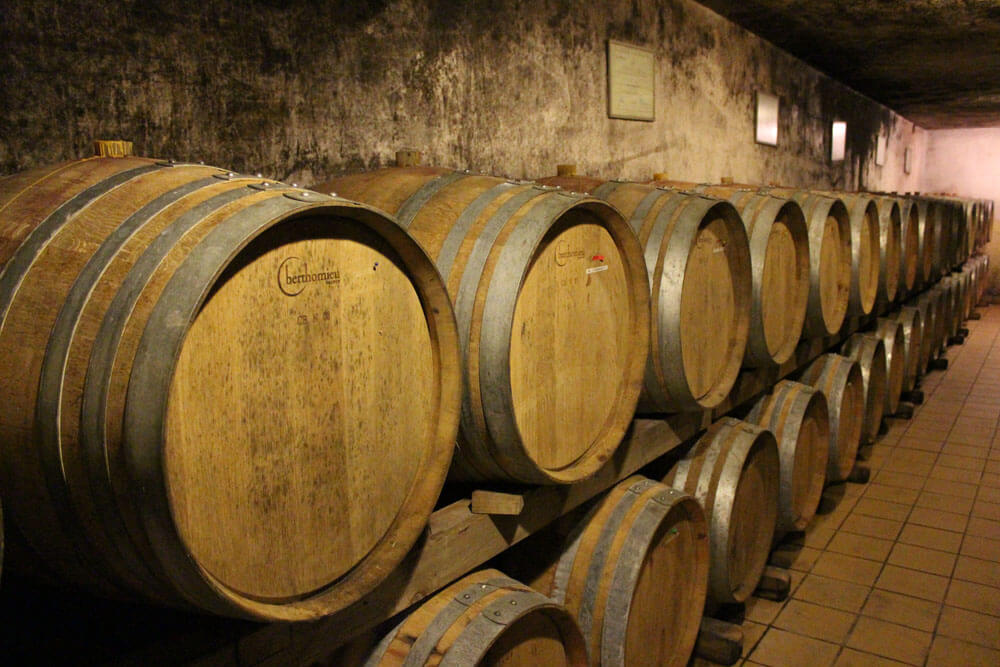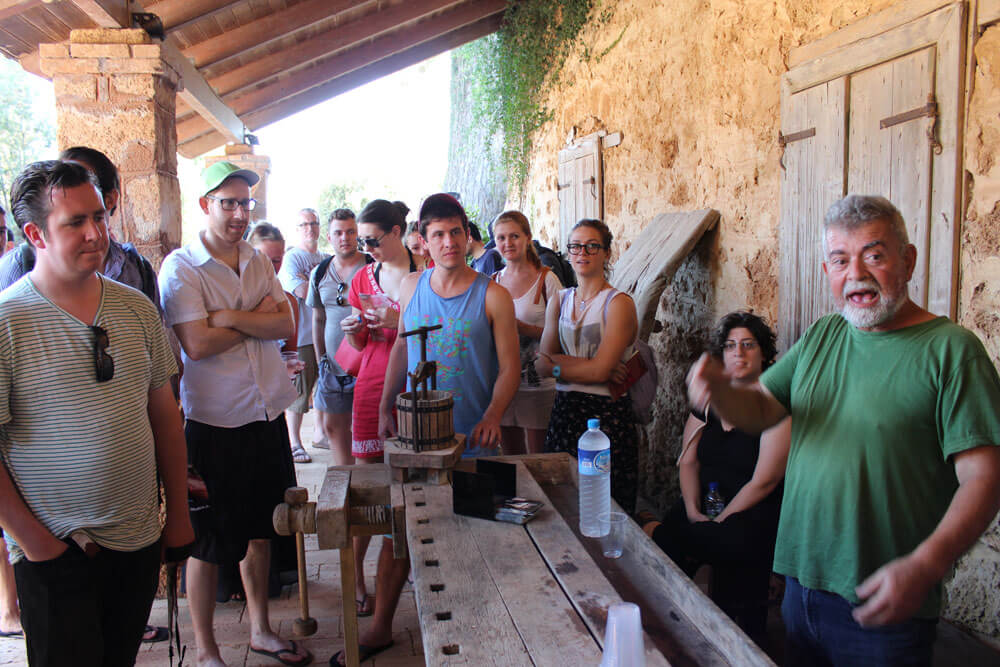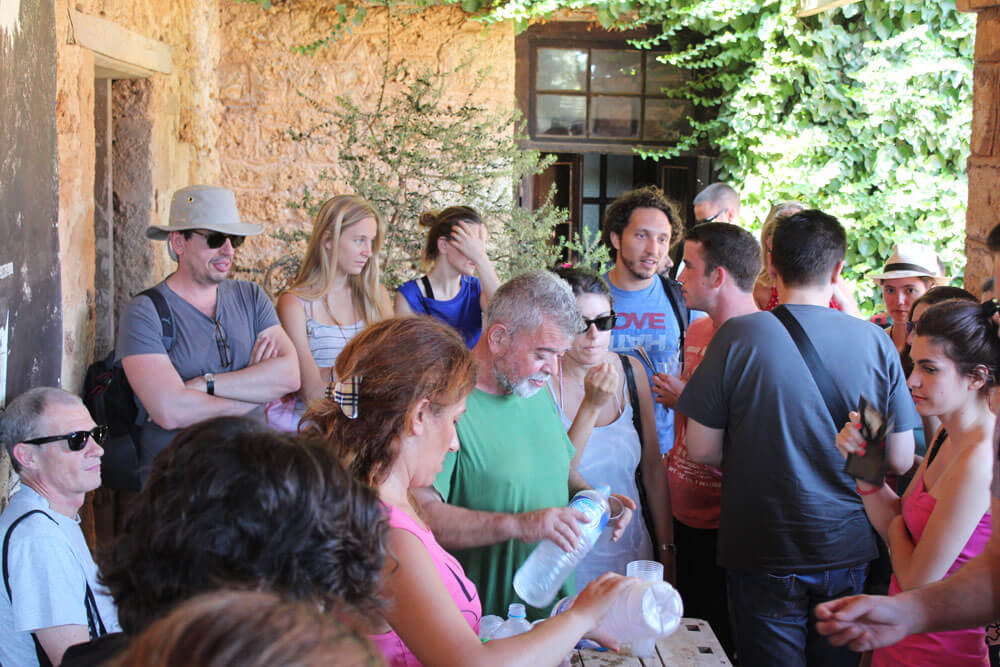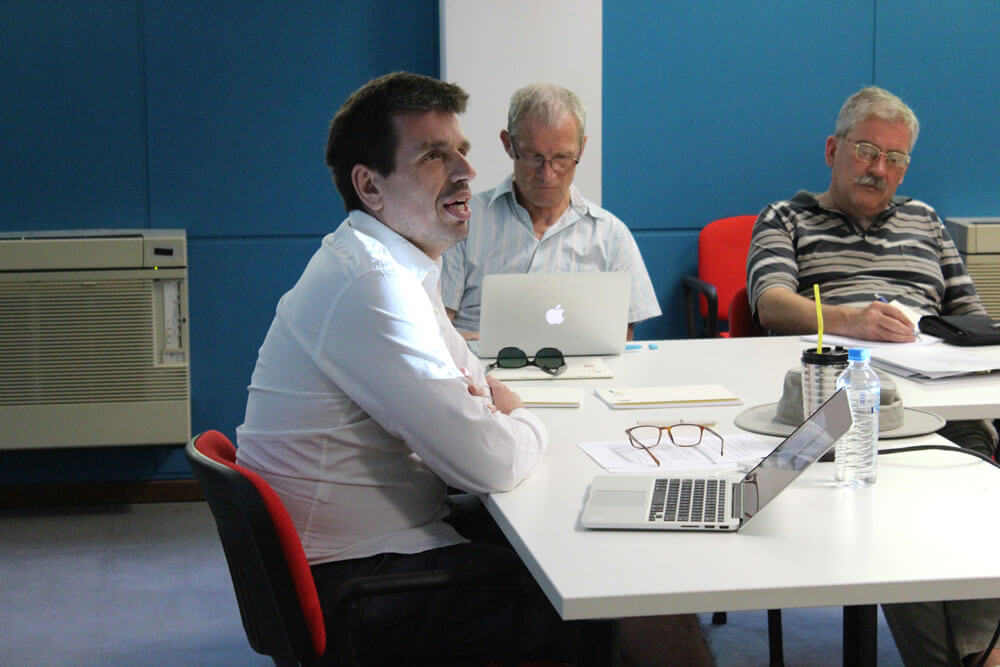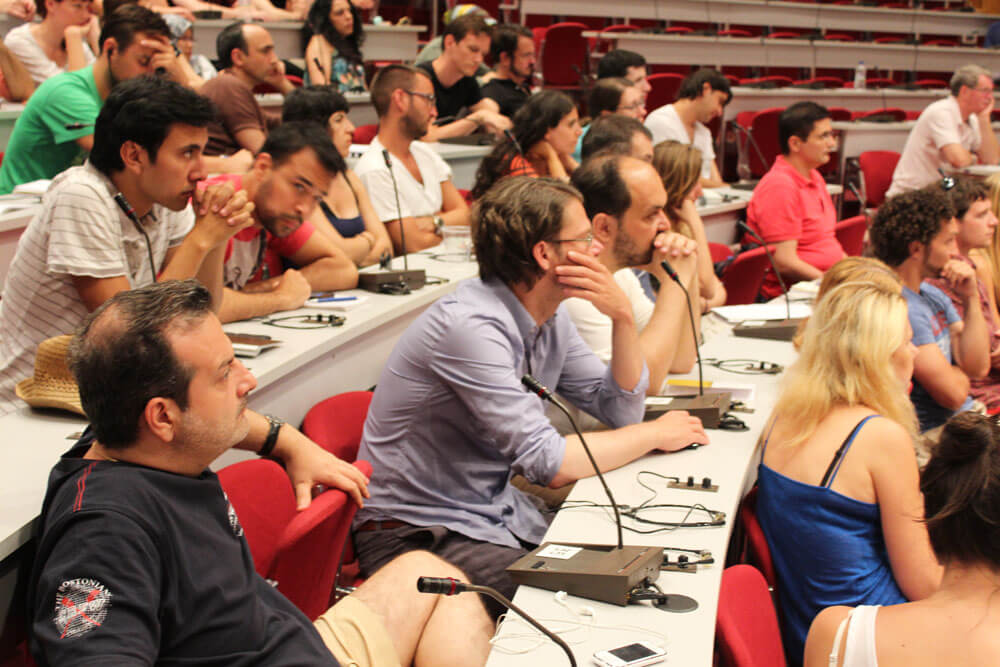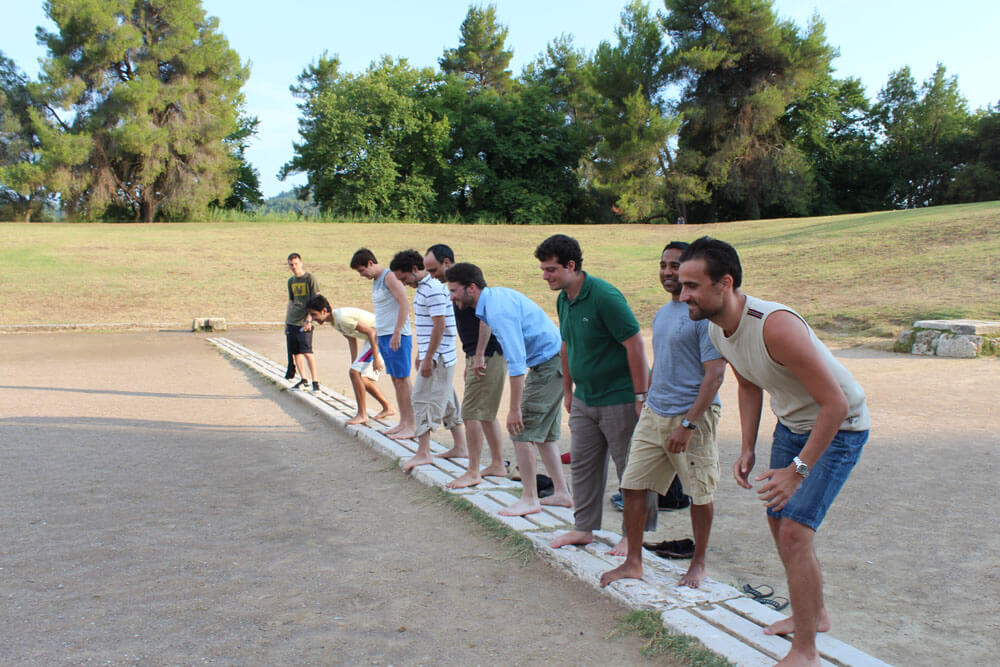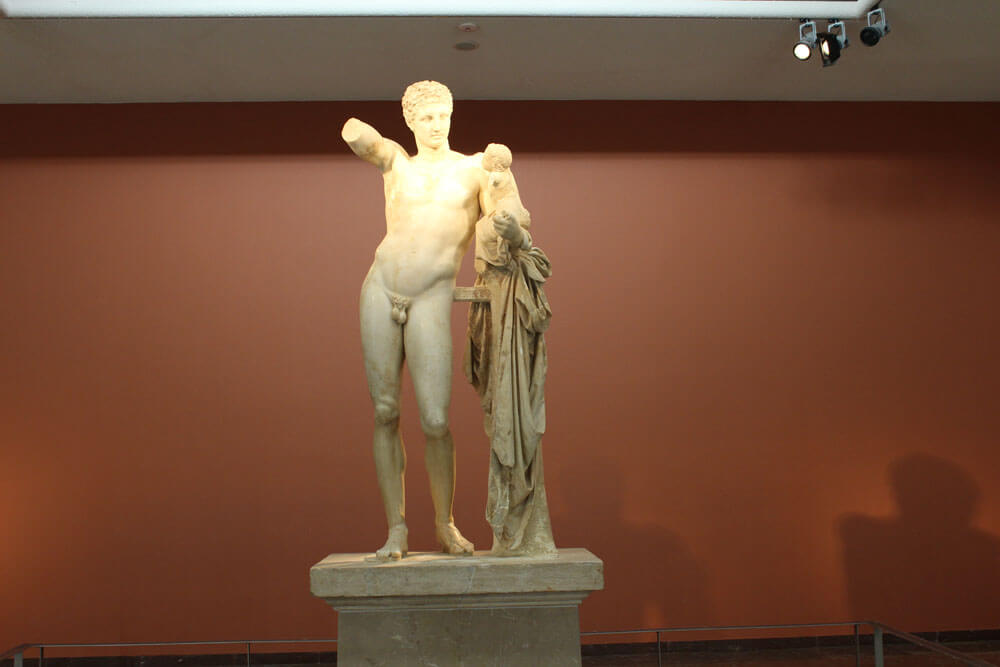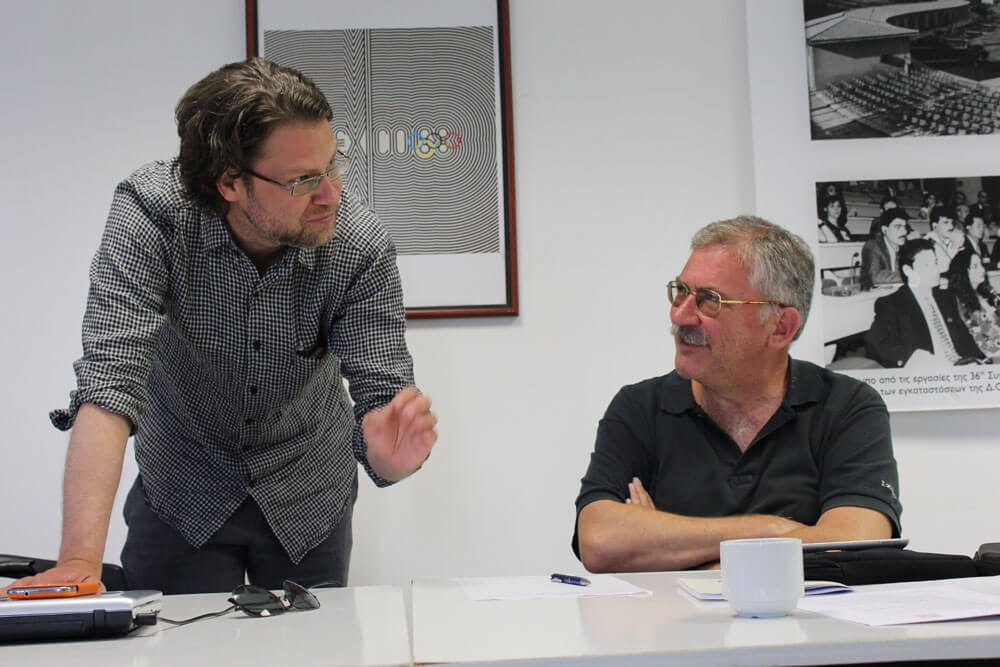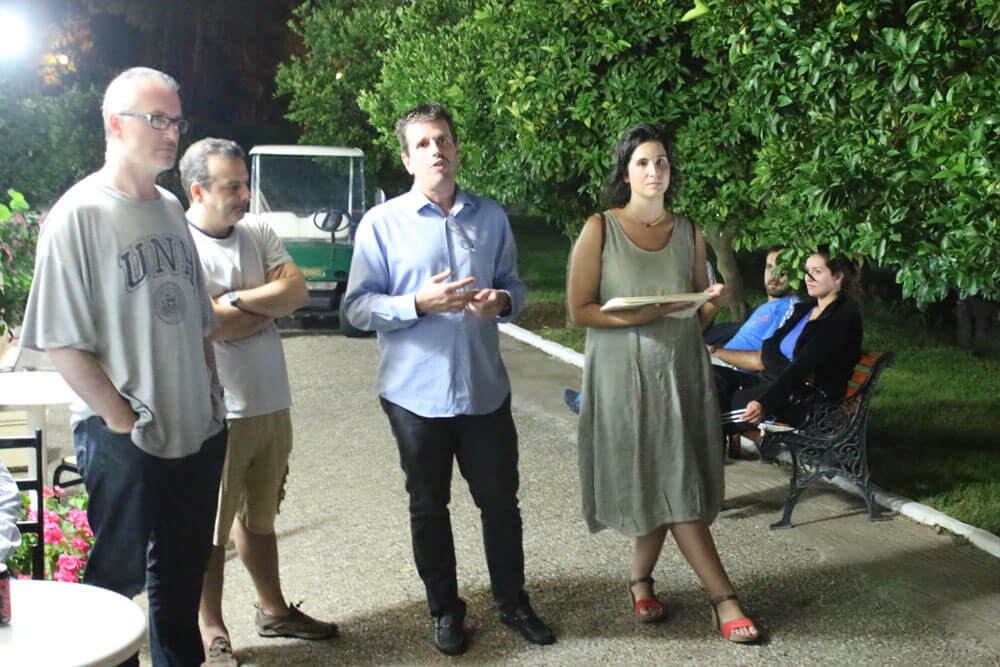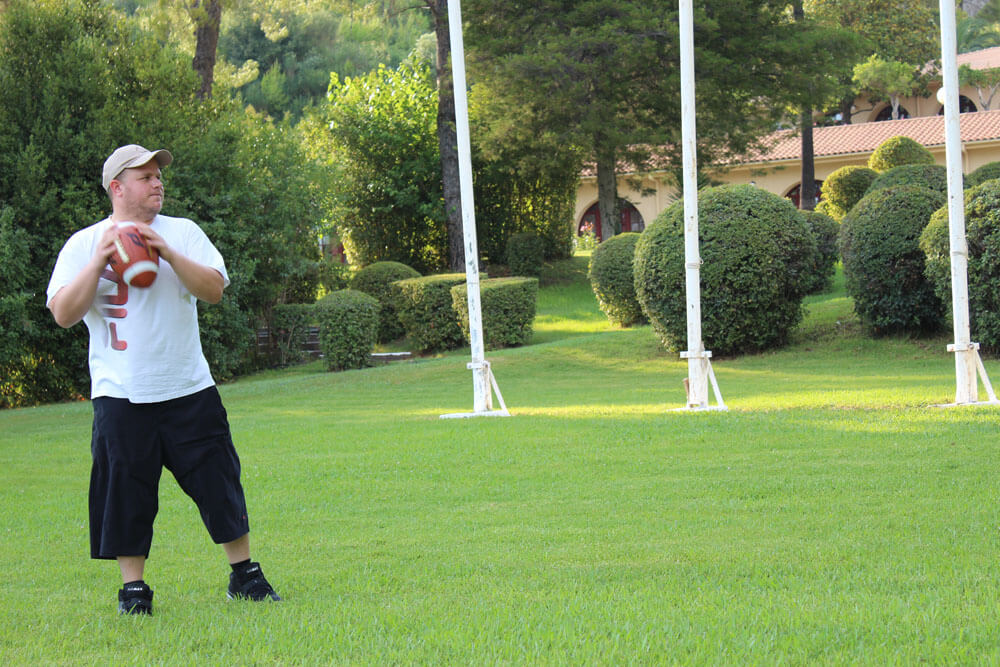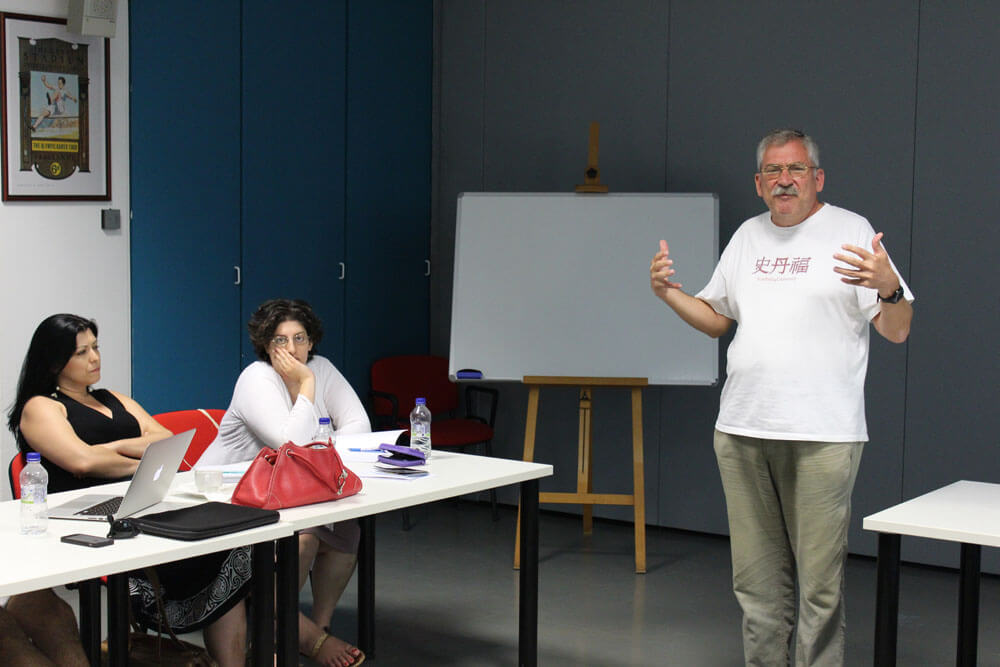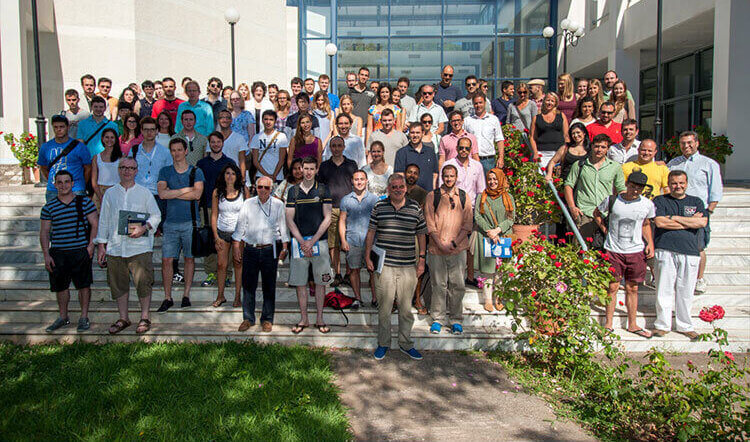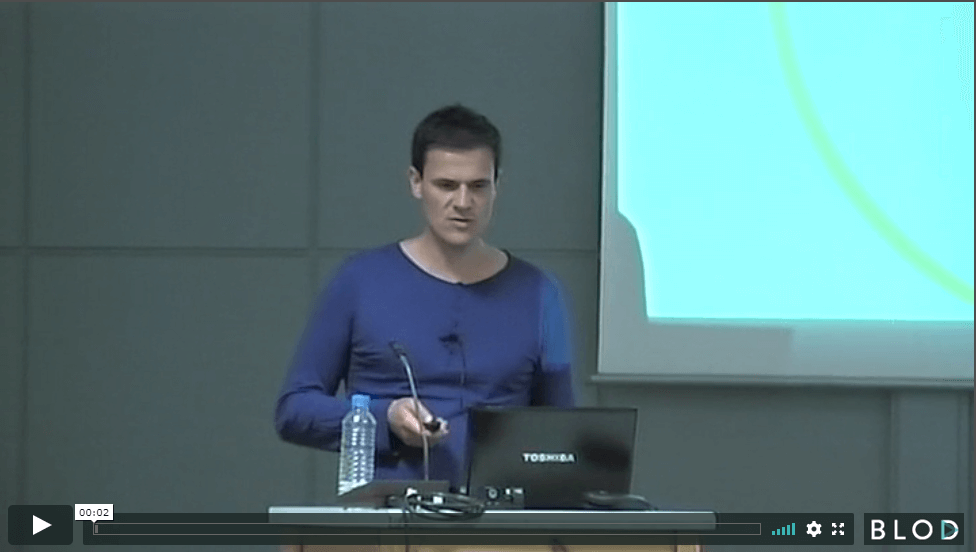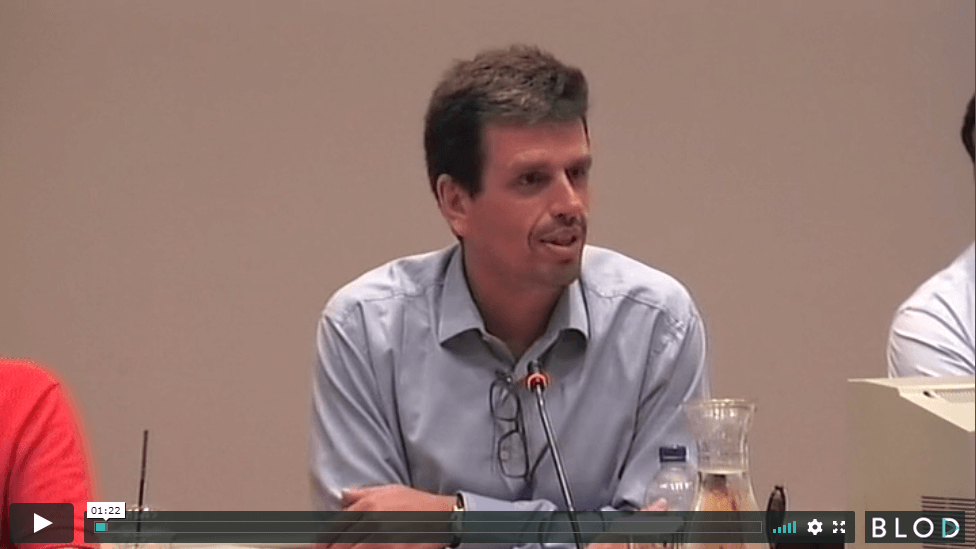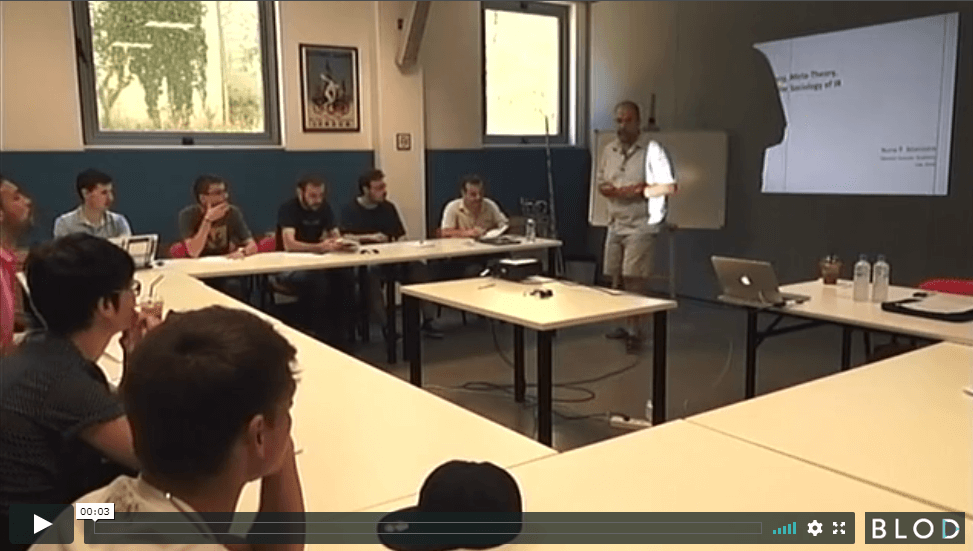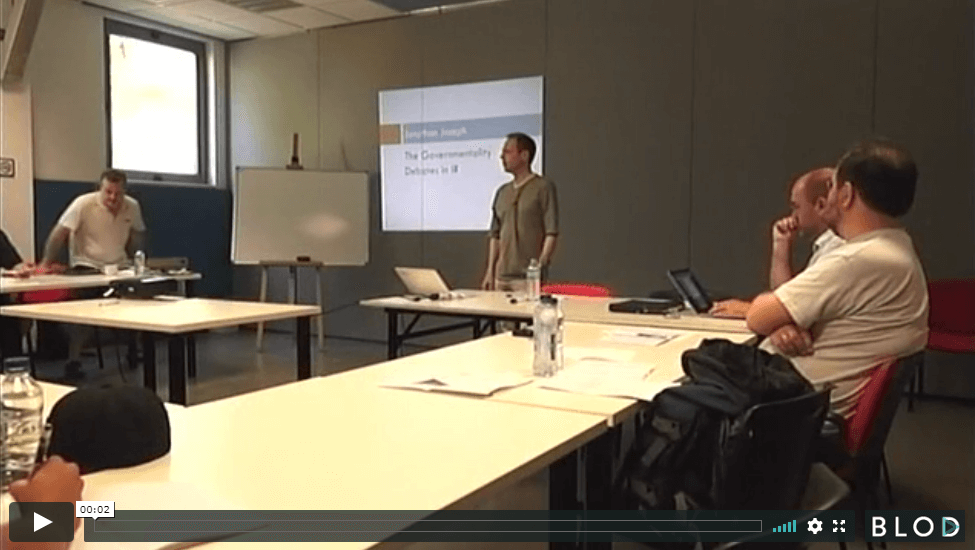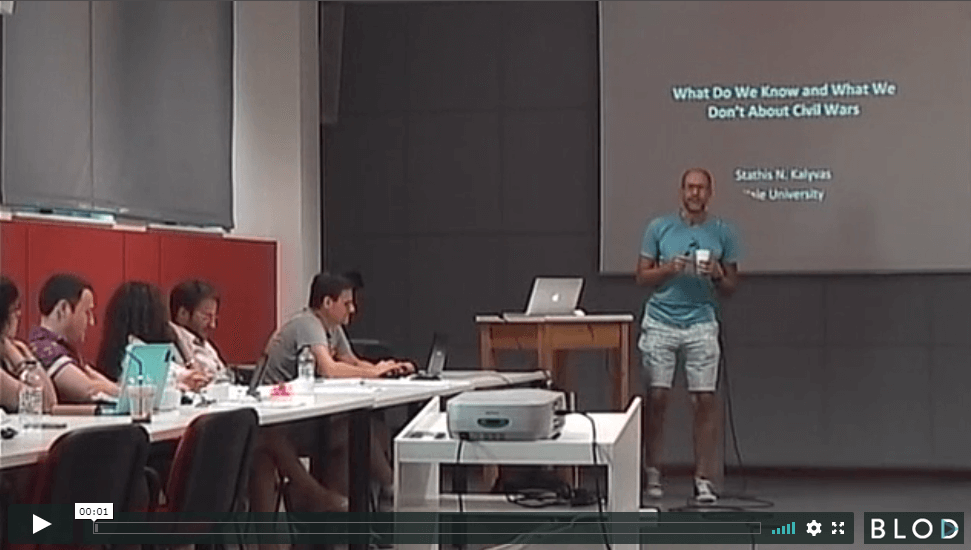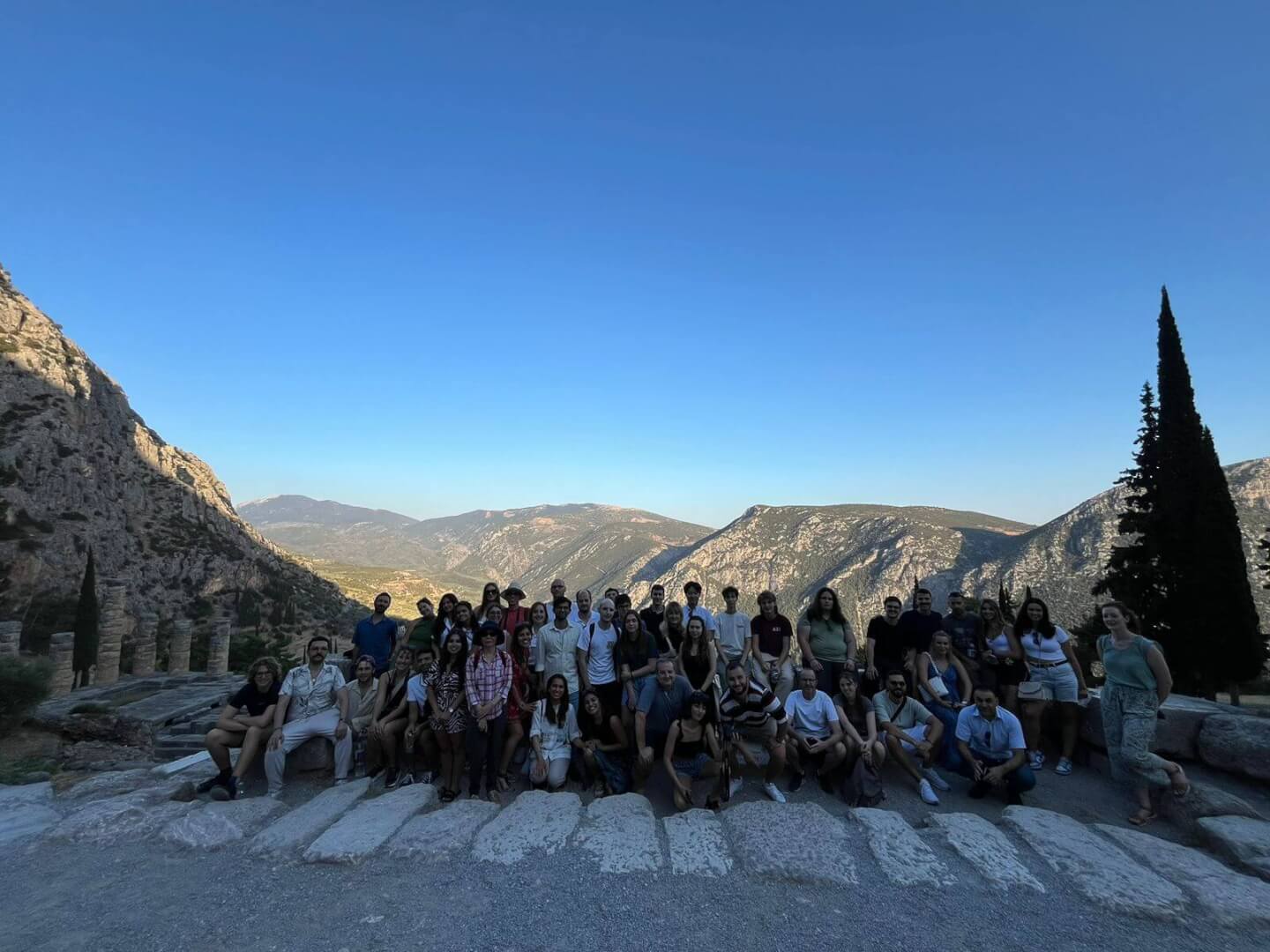Course Structure & Faculty
This year’s Olympia Summer Academy will run in parallel course-cycles:
Conflict & Political Violence
Terrorism and Counterterrorism
Religion and International Politics
Development Economics & Inclusive Business
Maritime Security
History & Philosophy of IR
Political Risk Analysis
July 12-23, 2014
Naflpio, Greece


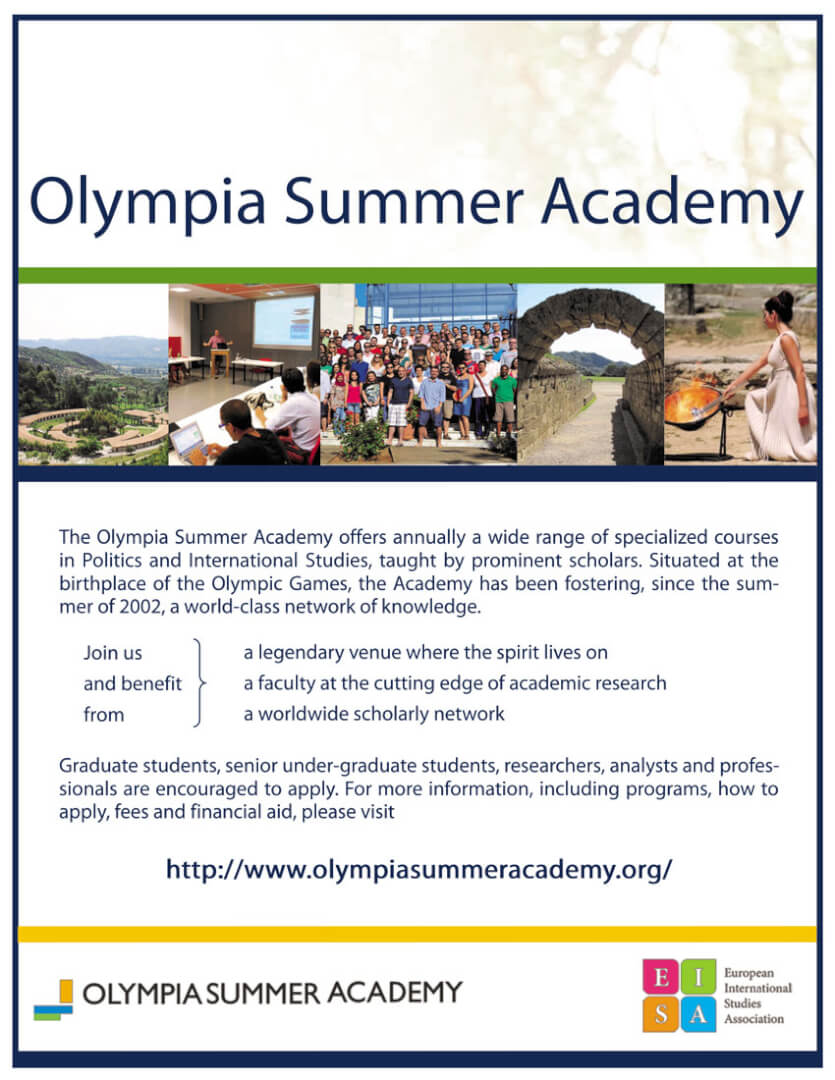
A: Conflict & Political Violence
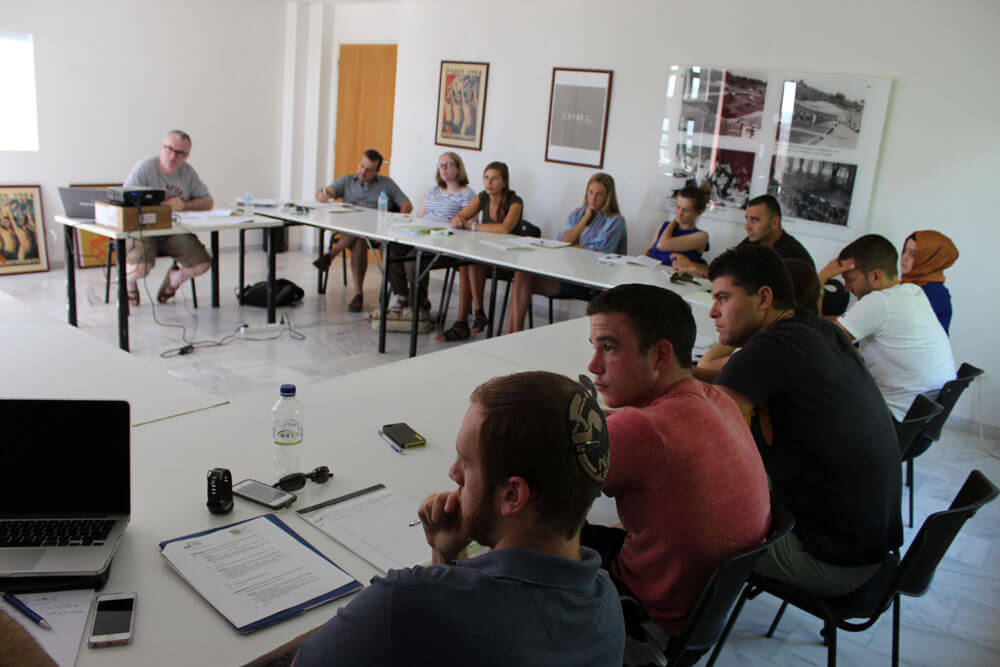
Course Description
The objective of the course is to review the most recent developments in the field of conflict and political violence. In exploring the intersection of large-scale collective action and political violence, we will draw from several disciplines and methodological approaches and we will examine a broad cross-section of topics, including the causes and dynamics of civil war, ethnic conflict, mass violence, genocide, riots, and terrorism; and the logic of rebel group formation, cohesion, and performance. Our geographic focus will be broad, reflective of the faculty’s diverse expertise. An integral part of the course is a workshop where students can present their ongoing research and receive feedback from faculty and peers.
We have scheduled two lectures each morning (9:00-11:00 and 11.30-13.30), which will be followed by lunch. We have also scheduled regular “frappe time” sessions during the afternoons (17.00-19.00), where faculty and students interact in an informal setting to discuss research. The student workshop, where students have the option of presenting their research, will be held on July 22. We are also planning a faculty roundtable to discuss the main trends in the field of political violence.
B: Terrorism and Counterterrorism

Course Description
Terrorism, and our response to it, are among the most compelling of global political issues: they dominate news headlines, public anxiety, and political strategies alike. Yet few attempt to analyze systematically this pressing phenomenon. Surely, no amount of analytical precision will rid us of the existence of terrorism, but if we want to respond effectively to the policy challenge that it poses we need first to respond effectively to its analytical challenge. To this end, the course seeks to provide an overview of the state-of-the-art in the study of terrorism, while also debate whether there is a significant continuity or transformation in terrorist behavior.
Topics that will be covered include: the place of terrorism within the broader context of political violence; the causes of terrorism; the inherent difficulties in defining terrorism and compiling reliable data on terrorist attacks; the distinction between ‘old’ and ‘new’ terrorism; the politics of terrorist risk perception; the global war on terror and counterterrorism. An integral part of the course is a workshop where students can present their ongoing research and receive feedback from faculty and peers.
C: Religion and International Politics
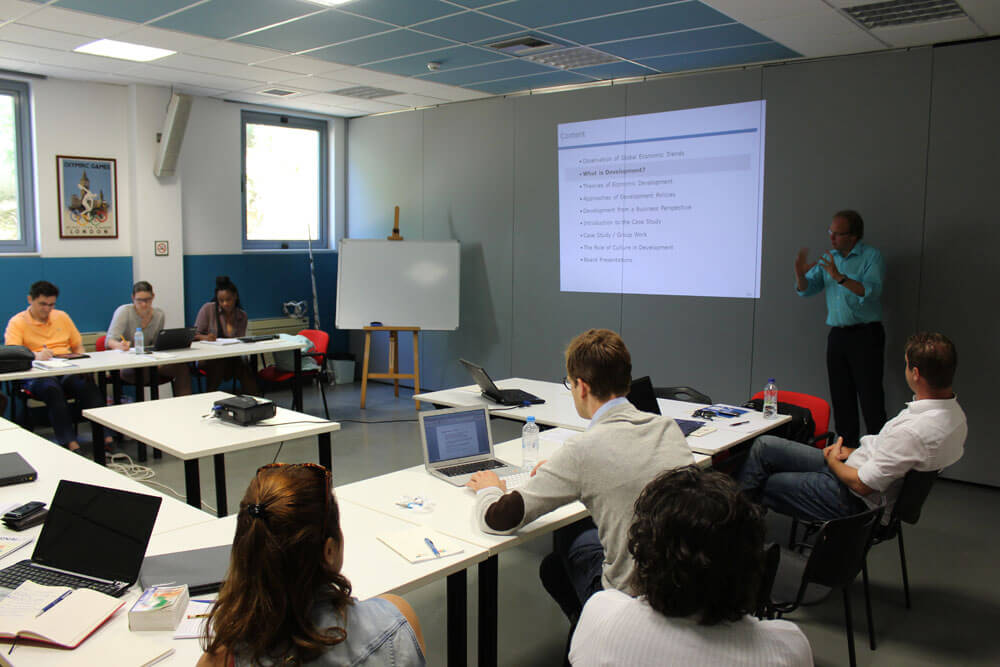
Course Description
The idea that religion matters in international politics is no longer a subject of much controversy in academia. Yet, this welcome break from a rather long-standing disciplinary “securalizing” silence/bias has, nevertheless, yielded rather little in terms of robust theorizing on how religion matters to politics at the national, international, and transnational contexts. This cycle offers a survey of the state of the field when it comes to understanding the nexus between religion and politics.
Our regional focus will be comparative, with particular emphasis on cases from Turkey, EU, and Greater Middle East. We will examine the role that religious issues play in the practice of international relations and, in particular, their influence on nationalism and identity politics, democratization, international norms, foreign policy, conflict and violence, and peace and negotiation, so as to allow students to leave the cycle with a provocative and rigorous overview of an evolving and fascinating field of inquiry.
D: Development Economics & Inclusive Business
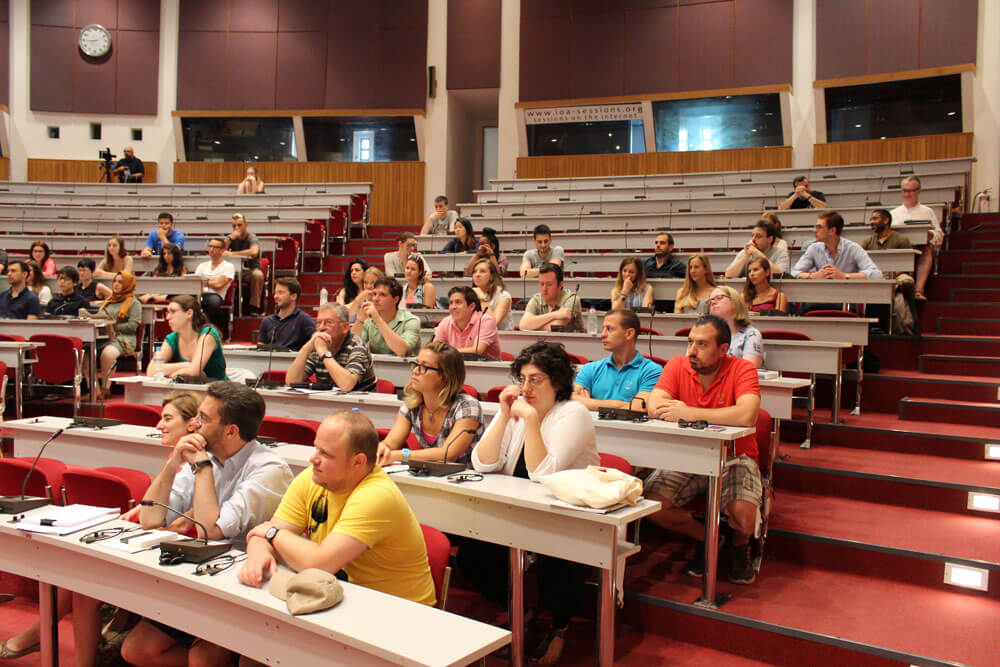
Course Description
Achieving social and economic development has been a constant effort for many countries throughout the centuries. This ambition has occupied countless politicians, philosophers, scientists and students. However, whereas in some countries strategies worked well, in others the same ideas did not fulfill expectations. Indeed, there are no magic bullets to overcome poverty, but instead a variety of theories of economic development has emerged. All of them find their own explanations for the drivers of economic development and have different implications for policy.
The objective of this course is to provide students with an understanding of the emergence and implications of different theories of economic development and the role that inclusive business can play in this context. This is done by examining various development theories with a focus on modern institutional economics approaches. These approaches explain differing development paths of continents, countries and regions, and help understanding the failure of many development assistance projects. In addition to a policy approach, we also look at inclusive business as a development model. The concept intends to combine the rationale of private sector companies with the goal to socially and economically empower the poor globally.
E: Maritime Security
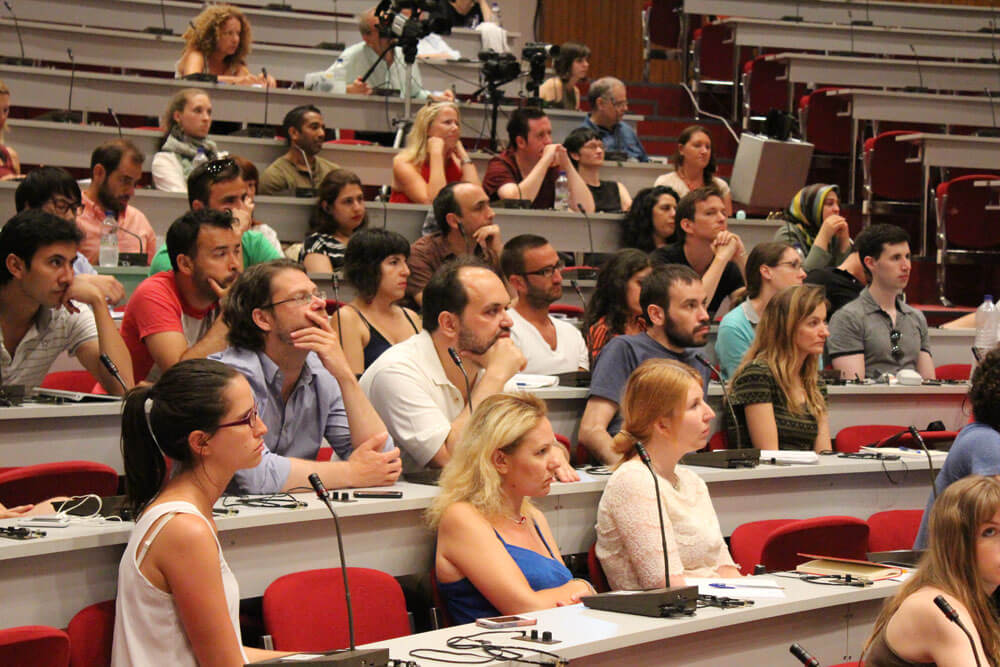
Course Description
Maritime security has been a long neglected stepchild of security studies. Discussions on maritime security have centered for decades on traditionalist understandings of sea power and force projection. There has hardly been acknowledgment for the changing security environment or for the emergence of new security theories which provide meaningful frameworks for studying different aspects of maritime security. The growing interest of the strategic community in the problem of piracy, new geo-strategic theatres such as the South China Sea or the Arctic, as well the maritime dimension of threats such as proliferation and transnational organized crime is gradually changing this situation. This course provides participants with crucial background knowledge in maritime affairs, including its economic, legal, strategic and regional dimensions. It introduces students to the most recent research conducted on maritime security and serves as a platform to discuss ongoing research.
The course contents to be covered, include a general introduction to maritime security studies, contemporary security theories, the history and different facets of the concept of maritime security and the major threats summarized under the concept, including piracy and transnational organized crime, basics in the Law of the Sea, recent maritime security strategies around the world, the role of navies and coast guards in the age of maritime security, new standards in international shipping as well as the role of private armed forces in maritime security.
In following the course participants gain insights in what is at stake in maritime security, which different theoretical perspectives allow illuminating the topic and what the practical challenges of achieving maritime security are. Teaching is by eight seminars of two hours each. In addition we will watch the documentary Stolen Seas.
F: History & Philosophy of IR

Course description
The discipline of IR has been deeply divided on many theoretical issues throughout its history. Many of these debates have been linked to developments in the philosophy of social sciences. Indeed, to slightly paraphrase Lakatos’s felicitous observation, “philosophy of IR without history of IR is empty; history of IR without philosophy of IR is blind”.
This remark captures accurately the aim of this course, whose purpose is twofold: a) to provide an overview of the state-of-the-art in IR theory; and b) to maintain a focus on the flow of theoretical ideas in the history of IR and connect this evolution with issues in the philosophy of social sciences in a synthetic and accessible way. By the end of the course, students will have acquired a good grasp of the main meta-theoretical issues in the discipline of IR and the social sciences more broadly. An integral part of the course is a workshop where students can present their ongoing research and receive feedback from faculty and peers.
G: Political Risk Analysis
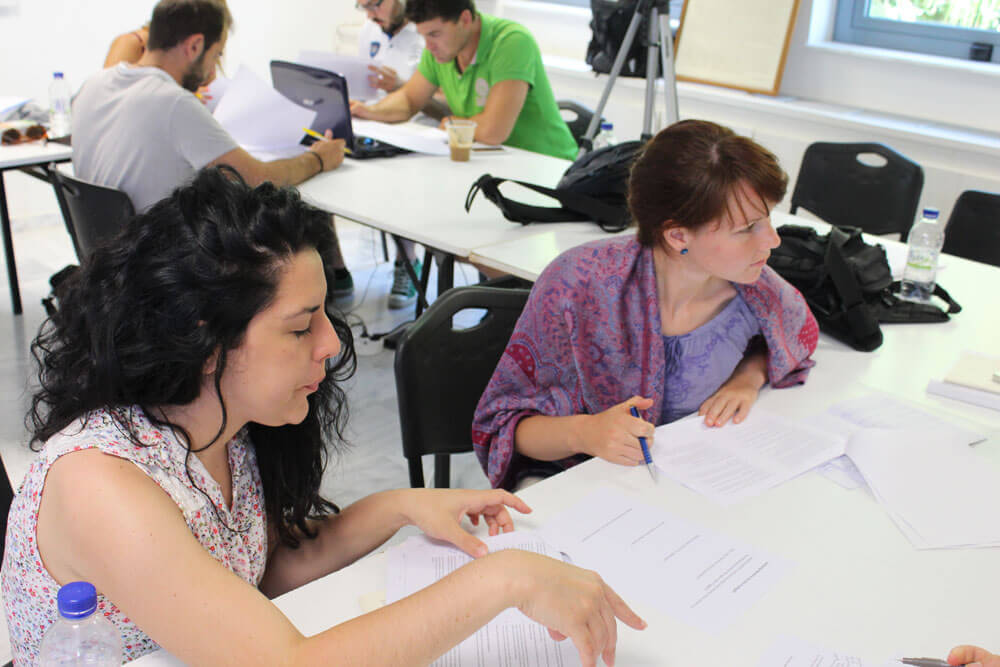
Course description
In recent times, financial investors and multinational corporations have become more aware of the need to “go beyond economics” and integrate political factors into their decision-making process. From the ongoing transformation of the Middle East to the Eurozone sovereign debt crisis, politics currently lie behind the most important global market-shaping events. The objective of the course is to explore ways in which political risk can be analyzed and managed in a range of environments.
The course is structured to provide participants with a good theoretical understanding of the concept, but also with analytical tools to identify, trace and measure political trends that can affect business and investment interests. We will examine political risk in both emerging markets and developed economies and cover specific sources of risk such as domestic instability, geopolitics or regulation. The course will rely heavily on case studies ranging from transnational to local examples. Simulations covering current political events will also be used in order to encourage a hands-on approach of participants and help them design strategies to manage and mitigate political risk.
